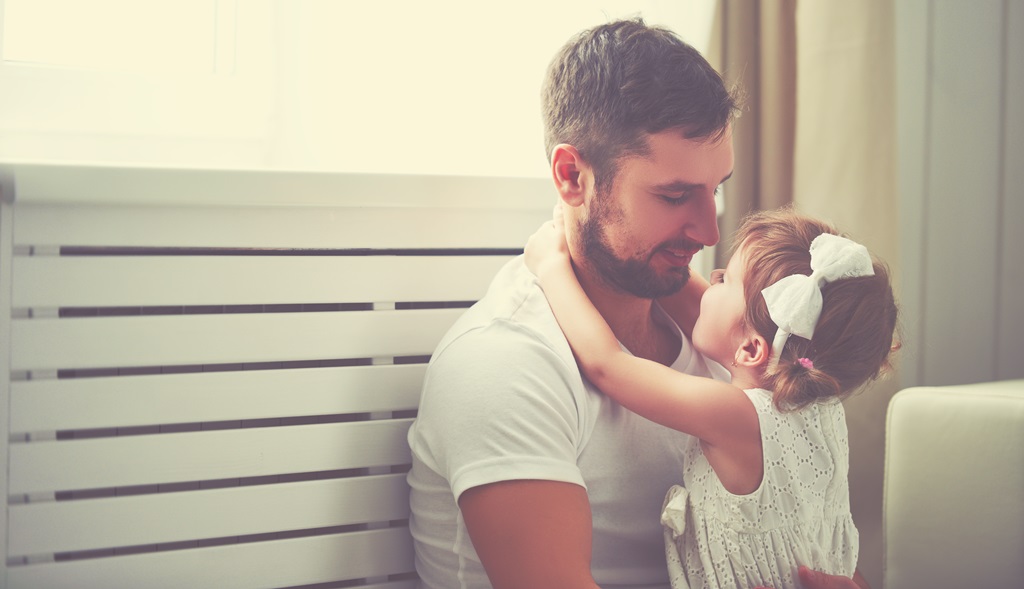- Study Says Most Parents Don’t Use Car Seats In Ride Share Vehicles Like Uber
- This 12-Year-Old Boy Is A Sophomore Aerospace Engineering Major!
- Fire Safety Experts Warn Of Hand Sanitizer Danger After A Mom and Kids Escape House Fire
- Recall Alert: Peaches May Be The Cause Of Salmonella Outbreak, 68 People Ill
- Summer Vacation In The Days Of COVID: Tips To Stay Safe
- How To Safely Grocery Shop During The Coronavirus Pandemic
- Michigan Teen With Vape-Related Illness Undergoes Double Lung Transplant
- Teen Kicks Off Anti-Vaping Campaign From Hospital Bed
- Teenager Receives Life Sentence For Strangling Sister To Death Over A Wi-Fi Password
- Toddler Falls To Death From 11th Deck of Cruise Ship
Shockingly High Mortality Rate Among Single Fathers


Shockingly High Mortality Rate Among Single Fathers
Single Dads often eat worse and binge drink more than parents with more traditional family arrangements, and this is putting them at risk of early death.
In Wednesday’s issue of The Lancet Public Health journal, researchers traced more than 40,000 parents for 11 years to find out how single fathers fared when it came to their health.
After making adjustments for differences in age, lifestyle, health and sociodemographic characteristics, single fathers’ premature mortality risk was more than 2 times higher than other parents.
“What we found is that single fathers have the highest mortality rate across these four parent groups,” said the study’s lead author, Maria Chiu, of the Institute for Clinical Evaluative Sciences in Toronto. “It’s a startlingly high mortality. They were three times higher than single moms and partnered fathers, and five times higher than partnered moms.”
Single Dads were also more likely to have cancer and cardiovascular conditions than single mothers.
Roughly 333,000 Canadians families, or 3.5 per cent of census households, are headed up by single dads with 1 or more children under 25.
Zohrab Mawani is one of them.
When he heard that single Dads like him face double the risk of dying prematurely compared with single mothers and partnered parents, it resonated with him.
“It leads me to think about all the time I spend alone and compare that with all the time that I did spend with my two kids,” the Toronto-based father of an 18-year-old girl and 13-year-old son said in an interview with CBC.
The 47-year-old entrepreneur has been separated and divorced for six years, and says that he juggles a variety of stresses including running a business, supporting his children financially and trying to spend more time with them.
He says that he uses a variety of coping mechanisms.
“I made sure I kept exercising regularly,” he said. “I definitely feel that that helps if I’m at the gym every morning or go for my run every morning. I’m a runner, so that relieves a lot of stress for me.”
The single father also admits he could do more — the way he used to when he was married and his wife would encourage him to take care of his health.
“I think in general men don’t take care themselves as well as women may,” he said. “It’s a generalization, but I don’t get to the doctor as often as I should.”
Chiu said that the study findings suggest that Doctors should be on the lookout for their patients who are single dads.
“This is an opportunity for the medical system to identify these high-risk individuals and really to provide advice to them in changing their behaviours and lifestyle factors,” Chiu said.
In the first questionnaire given to study participants, single fathers indicated they ate fewer fruits and vegetables and were more apt to binge-drink, defined as consuming five or more drinks at one sitting.
The study is however limited because the researchers just checked in with people once, so they don’t know if anyone changed any aspects of their lifestyles, such as drinking habits, over time.
Commentary published with the study pointed to another factor.
Dr. Rachel Simpson, of the University of Oxford in the United Kingdom, said single fathers had less social support than partnered fathers. “This lack of a support structure could provide a plausible explanation for the increased risk of mortality,” she wrote.
Simpson also noted it is important to note the positive effects of having children in the household, based on a 2004 Swedish study that suggested mortality was highest not among single fathers but in fathers who were not living with their kids and in childless men living alone.






0 comments